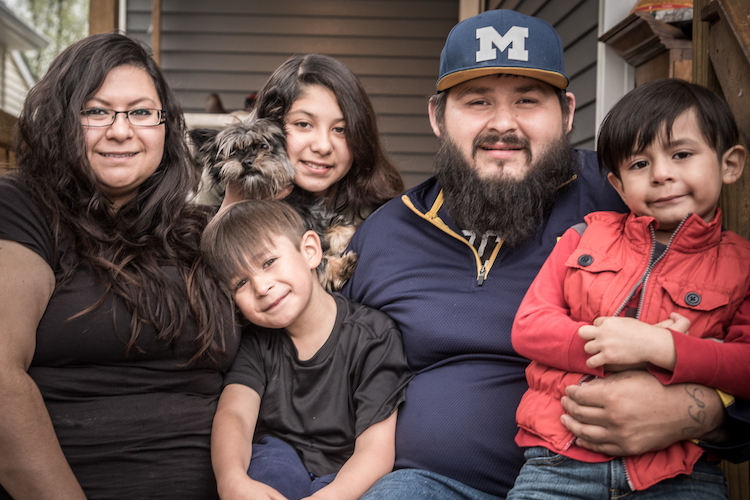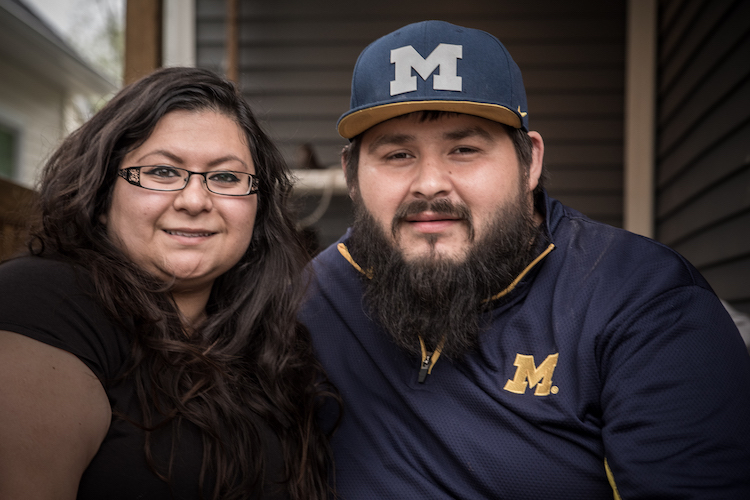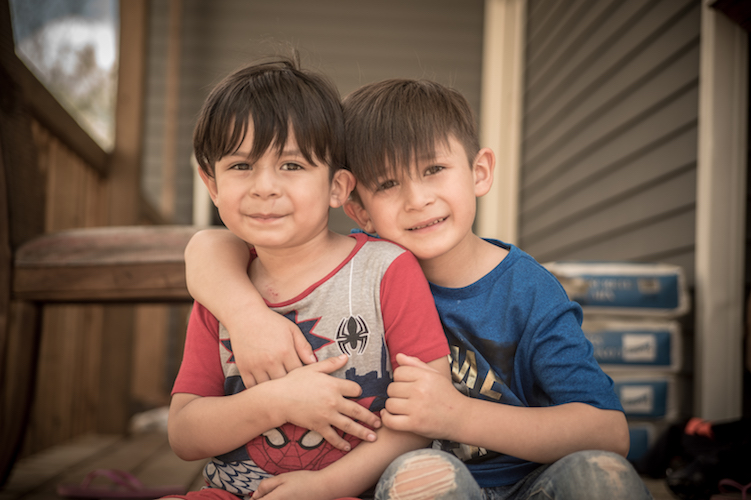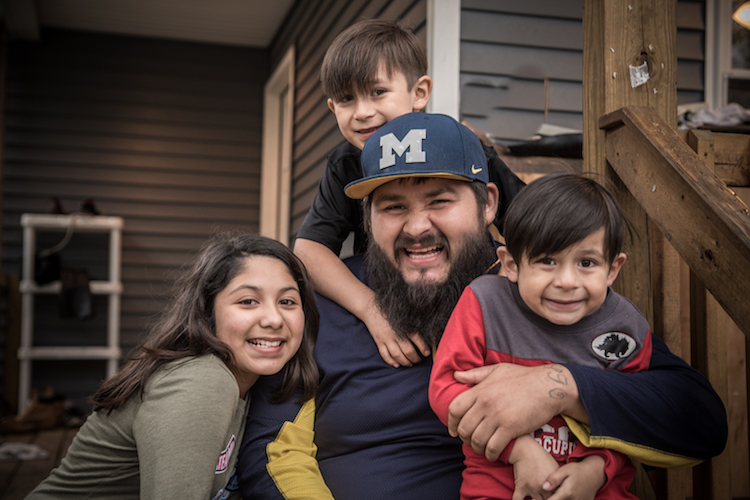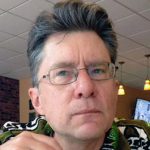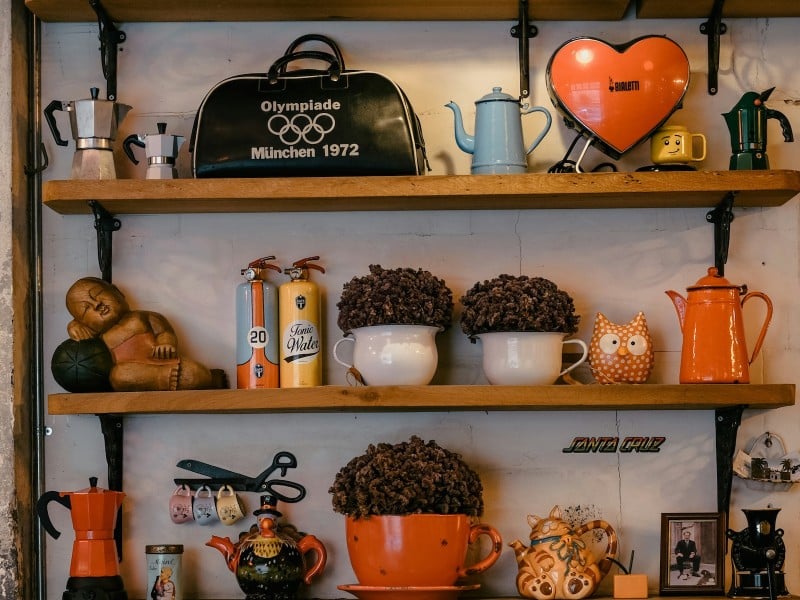Transformation: When lives change, a neighborhood can change
Esteven "Esto" Juarez finds his life transformed and now works with those committed to finding a way to deal with group violence.
Editor’s note: This story is part of Southwest Michigan Second Wave’s On the Ground Edison series.
At age 18, Esteven “Esto” Juarez was transformed.
Before, back in the early 2000s, Juarez founded the Edison neighborhood gang the Washington Street Boys. Throughout his teen years, he committed acts of felonious assault, he was smoking crack, and it was a guarantee that his life would end in addiction, murder, prison, or, as Juarez says he contemplated, suicide.
Now at 31, he’s a family man, a pastor, and the program director of urban outreach for Urban Alliance.
Before his transformation, Juarez lived a doomed existence. Society saw him as a problem that needed to be sent to prison ASAP. “That was the narrative, and it was the conditioning of my environment that put that narrative in place,” Juarez says.
But his narrative was turned 180 degrees.
“When we are presented with different information that we deem true, and we apply it, then our reality starts to change,” he says. A bit of scripture that he keeps in mind and passes along to the youth he’s trying to help, is Romans 12:2. “Do not be conformed to the ways of the world, but be transformed by the renewing of your mind,” he recites.
“Transformation can’t happen unless the renewing of your mind happens, and you actually apply that.”
Ways of the world
We go to interview Juarez and find him snoring on a couch at the Urban Alliance’s offices on Washington Ave. He “awakes” with a snort and he shakes hands with a smile. It’s a joke.
Juarez is friendly and open, and talks often about “lovin’ on people like Jesus did.” He’s also a bit imposing, has a big, bushy beard and skull tattoos. He admits that some people’s first reactions to seeing him are “Oh no, it’s a bad hombre!”
People “tend to judge a book by its cover,” he says. Of the tattoos, “I’m not ashamed of them. I don’t regret them. Part of it is my story, and what my story is. The scars and the tattoos I have are a part of my narrative, man. They don’t define who I am, but they’re just a portion of who I am,” he says.
Juarez is a pastor in the RCA, the Reformed Church in America. A lot of the church’s other pastors, “they don’t look like me. They’re older, white, Dutchmen who have doctorates and MDivs (Master of Divinity degrees).”
His parents were migrant workers who moved between Florida and Michigan with the change of the seasons. But “90 percent of my life has been based here in the Edison neighborhood,” Juarez says.
Growing up, Juarez’s family included ten brothers and three sisters. “We were poor, we didn’t have too much. I remember in the summer, we were always eating at the Mission or the drop-in center…. As kids, we weren’t nourished like we should’ve been.”
As the crack epidemic peaked at the end of the ’80s, both of his parents became addicted. Homelife “was one of those things where the parents were there, but it was like, absence, they weren’t there.”
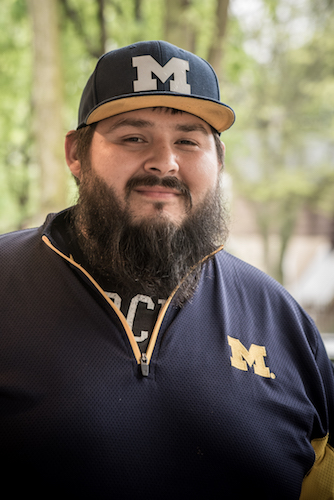
Juarez remembers a childhood of struggle. “What we did have, we either stole it from people, or we just tactically acquired it somehow.”
His family broke up, and Juarez moved in with his grandfather, Felix Juarez.
Juarez’s grandfather was “one of those men figures in my life who showed me a lot of things, taught me work ethic.” He was an immigrant who came to the U.S. in the early ’60s, and “worked hard… he was an extraordinary man.”
When Juarez was 15, his grandfather died. “When he passed away, I didn’t know how to deal with it. By that time I was already involved in the streets, smokin’, and drinkin’. First time I smoked marijuana I was in fifth grade.
“I remember telling myself I’d never be like my Mom and Dad, but when I was around 15 or 16 years old, I became a crack addict myself.” For the next four years, “that’s all I knew, that’s all I did.” And at the same time, “I was functional, I did everyday stuff. I had a job at a lawn care company.”
Also, “when I was 14 I was stabbed and almost killed in a fight, and that kind of messed with me a little bit. When I was about 16 I stabbed two people, and was prison bound. Just wrapped up in so much crazy stuff. Drugs, money, violence. That was my narrative.
“When I was 18 I’d got to a point where I was really hard, really rough. I was already contemplating suicide. That was the best option. My life was at a point where I was like, man, this sucks, I’d rather be dead.”
In the worst years of his life, Juarez remembers listening to the message of Nate Bull (now a pastor at Centerpoint Church on North 10th Street), who did street ministry in Edison. “He’d come out every week showing God’s love in a practical way. It’s the beauty of redemption and restoration.”
One day, 18-years-old and thinking of suicide, “I remember praying and asking God to free me from this addiction, and he performed a miracle in my life.” His addiction was gone. The next week, “I remember feeling confused, angry, happy, joyful, all at the same time. It wasn’t normal,” he says.
“That’s the day Jesus became real to me. All credit goes to the Lord, man. He pulled me from the darkness, and gave me the ability to choose and to think different,” Juarez says.
Group Violence in Edison and Kalamazoo
“We work with Pastor Esto a lot,” says KPS community police officer in Edison John Resseguie. “Phenomenal dude.”
The Kalamazoo Department of Public Safety has long been looking for its own transformation in ways to deal with area violence and may have found it in working with the community.
Shootings in Kalamazoo have gone down 63 percent since 2014, according to KDPS. This is in part thanks to work by, and with, community leaders like Juarez.
In a meeting with Second Wave, Resseguie, KPS Chief Karieanne Thomas and Sergeant David Juday gave the message that community efforts are helping drive violence down — especially group-involved violence — in Edison and other Kalamazoo neighborhoods.
The 2014 shotgun killing of 13-year-old Michael Day by 15-year-old Victor Garay in Edison was the wake-up call that something more than police enforcement was needed to stop the violence.
The murder led to the community to demand of the police, “What are you going to do about it?” Thomas says. But, she adds, the question should be “what are WE going to do about it? What are the strategies that hold each other accountable and use all of our talents to make sure this doesn’t happen in our community?”
This led to ISAAC’s work with the KDPS on the Group Violence Intervention strategy.
The strategy “is going very well,” Thomas says. “It has to do with everyone coming together. Law enforcement, courts, the community, and social service agencies, to provide support from all angles. Really, our goal is to reduce group-involved shootings, so people put the guns down, and give them the opportunity to make improvements in their life, whether they need a job or a house, to give them an alternative.”
“Never (before) in my career have I ever gone with social services to a house, to talk about gun violence, and then introduce them to social services” as he is doing now, Juday says.
Resseguie adds, “It’s much more fulfilling for a police officer to say, ‘Hey, I can do something to help you — well, I really can’t, but this lady or this man who’s with me, they are from this organization and I brought them to you, and I really want you to choose their route, because my route is jail and that’s not good.'”
Juday says that the GVI has led to success stories of “guys that were gangbangers, that were shooters, now with a full-time job, supporting a family. There’s a lot of those stories.”
“Just not picking up a gun is a success story,” Thomas adds.
Resseguie says he didn’t have any hard data on gang activity in Edison, but “as far as the activity that people see on the street, primarily Washington Street, (gang activity) is significantly down. The Michael Day homicide was a big deal in Kalamazoo a few years ago, that was probably when Washington Street was at its peak (in gang activity).”
He continues, “and through different opportunities, part of it was partnering with Esto, and having him go out to convince people there are other options… We’ve been able to significantly reduce the Washington Street Boys down to — I don’t know the last time we had anybody responding to a crime involving them. They still exist. You can drive down the street and still see some of the old members hanging out, and I’m confident they’re probably committing crimes, but not nearly to the extent that they were.”
Juday says, “The thing that we focused on was the violent crime, the gun crime. We didn’t focus on the petty stuff. And when we looked at that group (the Washington Street Boys), we saw that there were only one or two guys who would actually pick up a gun and pull the trigger. So we did a laser focus on that individual, and once we got them removed from that group, we haven’t had as many incidents.” Just as the Group Violence Intervention strategy is intended to work.
Arrest, the courts, and prison are what the police have always had to offer offenders. But only a portion of the new strategy “is about enforcement,” Resseguie says. Primarily, the GVI’s goal is to “keep people alive, and keep people out of jail.”
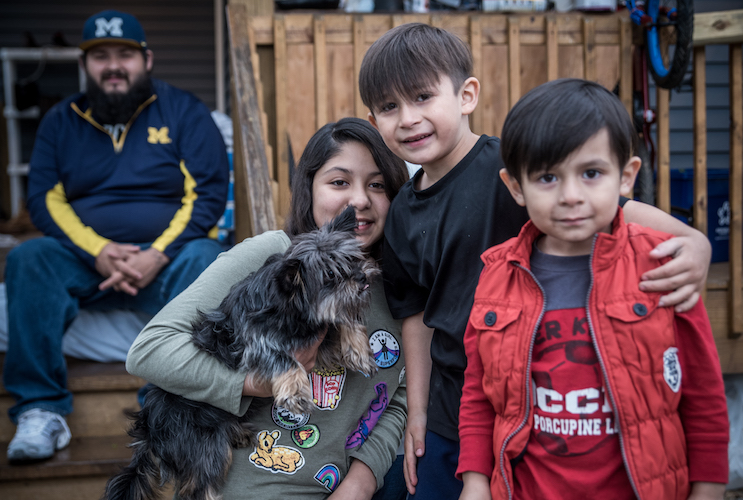
Renewing young minds
In 2014, less than 10 years after his transformation, now-pastor Juarez spoke at the funeral of Michael Day, doing what he could to provide comfort.
“I was the founder of the gang that he was kinda affiliated with, the Washington Street Boys. And I had to do his funeral. One of the hardest things I’ve had to do.”
When he went from hanging on the street as a Washington Street Boy to doing street ministry for the Lord, “it’s not like everything was all better. It was just a different perspective.”
Juarez was now on a mission to help, and he had to do it in the neighborhood that was full of what turned him bad. “I love the church, but I feel there’s a disconnect within the communities and churches, and the way church is done,” he says.
Pastors or social workers from outside of Edison may come in with true sincerity to help, but Juarez has more street cred than their doctorates or Mdivs can provide.
“We have to create a platform for indigenous leaders to lead where they’re at,” Juarez says. So he made it his mission to go out to his neighbors, bad, good, and at-risk, “and love on them, teach them, empower them to be the change they want to see,” he says.
He put himself on “the frontline of the battle” as a “living example,” he says.
But “credit goes to the Lord…. It was something that the Lord was just doing. Being from this neighborhood, growing up in this neighborhood, being an indigenous leader, and the love that I have for this community — what it did was God used that avenue for me to be able to speak wisdom and light into the people of this neighborhood.”
After nearly 10 years of street ministry on his own and with the Vanguard Church, Juarez took his current position at Urban Alliance.
His tactic for urban outreach is a “three-pronged approach, mind, body and soul” for area youth, he says: Education, personal leadership development and character development for the mind; nutrition literacy, Crossfit AZO and Lightning Kicks for body, and Youth for Christ, his own pastoring, and peer-to-peer mentoring for the soul.
Keeping kids out of gangs and prison sounds like a reasonable goal — but Juarez also pushes them to aspire to college and careers.
These are Edison kids who “don’t even think, in their mind, they’re supposed to go to college,” he says. With the Kalamazoo Promise giving them the financial means for education after high school, “we just have to figure out the preparation and support for these young individuals to take advantage of what’s there.
“I tell this to the kids all the time, ‘you’re not defined by your past, but you’re defined by the very next step you’re willing to take into the future,” he continues. “And if you have the mindset of don’t be like yesterday, and tomorrow be greater than today, you’ll always put your best foot forward.’ “
Brother Esto
Asked to highlight any success stories, Juarez says that success is “just changing the trajectory of one’s life, more so than somebody obtaining housing or awesome employment or whatever.”
He’s opened his own doors for youth like Alejandro and Jorge Rodriguez, two brothers who live at Juarez’s home. The eldest, Alejandro, is making good money at the Getman Corporation now, he says, having learned skills at the Urban Alliance’s Momentum program. “The crazy thing is, his little brother sees that, and is now attending the Momentum program.”
Juarez points out Jajuan Miller as another success. Miller shows up moments later at the Urban Alliance office to see “my brother Esto,” Miller says.
“He’s made a big impact in my life, because if it wasn’t for Esto coming into my life and really helping me out, two years from now I’d probably be in prison.”
Miller was born in Chicago and moved to Edison at age 7. A home life of drug use and abuse allegations led to him spending 10 years in foster care.
“I started being part of the streets…. We did a lot of things on the streets that I really don’t want to speak on,” he says. “I was looking at some years in prison for a pistol case.”
After spending some time in the system, “I’m getting my life on a straight path.” Miller now has two jobs thanks to Juarez’s guidance and all of his spare time he spends with family — by which he means Juarez’s family.
“They treat me like a little brother, treat me with love and affection.” Miller says he has his ups and downs. “I can be a butthead sometimes,” he says with a grin, “but I listen to him (Esto), and I’m starting to use those tools that he’s given me.”
With Juarez, “I feel love, I feel protection, I feel like this is my big brother, you know?” Miller says.
‘Where the darkness Is’
At the Juarezes’ house, on the 1200 block of Washington, wife Ariel is keeping one eye out the window to check on sons Zechariah, 4, and Estevan Ezekiel, 6, playing around their small front yard.
She’s originally from Comstock and knew of Washington Avenue’s reputation before she met Esto.
“When we were looking to buy a house over here, I was hoping it’d be any street but this street,” she says.
They found the house they now live in, “in really bad condition,” and went to work renovating it. During that time, in 2015, then-3-year-old Estevan was hit in the leg with a 9mm bullet during a random drive-by.
The shooting didn’t deter Juarez’s mission. Back in his office, Esto says it made him think, “the kingdom of heaven needs to be where the darkness is.”
It also made him think, “Woo, do I really trust you, Lord? I do, even at the expense of my 3-year-old’s life.”
Ariel says that “after the incident with our son, I feel the police started coming up and down our street a lot more than usual, which we really appreciate…. It deters a lot of gang activity as well. So this block has improved quite a bit.”
Her husband has also had an impact on the street, she says. “Oh, for sure. Because this is where he’s come from. These are the same streets that he terrorized, you know,” she says.
“The Lord’s just given him this mission to restore…. to turn that (past) around and bring light into this neighborhood.”
Houses on Washington never have porch lights on at night, she noticed when they moved in. “It’s really weird.”
So the Juarezes leave their porch light on every night.
Her family “wants to be a light in this neighborhood, on this street,” she says.
Mark Wedel has been a freelance journalist in southwest Michigan since 1993. He and his wife have owned a home in Edison since 2004. For more information see his website here.
Southwest Michigan Second Wave’s “On the Ground Edison” series amplifies the voices of Edison Neighborhood residents. Over three months, Second Wave journalists will be embedded in the Edison Neighborhood to explore topics of importance to residents, business owners, and other members of the community. To reach the editor of this series, Theresa Coty-O’Neil, please email her here or contact Second Wave managing editor Kathy Jennings here.
The On the Ground program is made possible by funding from a coalition of funders found here.
For more Edison coverage, please follow these links.
Edison is disability friendly, but unfriendly sidewalks are among issues to be addressed
Empowering Women in Edison: Two women who help others find their own strengths
The library building is in its 90th year, but the programs change to keep up with Edison
As the Boys and Girls Club Youth of the Year, Damarion Johnson learns how to take center stage
For many single parents in Edison it takes almost super powers to succeed
Let your voice be heard in Edison: IK2025
From a single scooter company to three buildings, Jericho Town grows in Edison
Liga Azteca de Futbol offers convenient sports option for Edison parents
Fire: Where teens find a safe place to learn about themselves and others with poetry
Edison: Where helping your neighbor is what people do and diversity is a matter of pride

